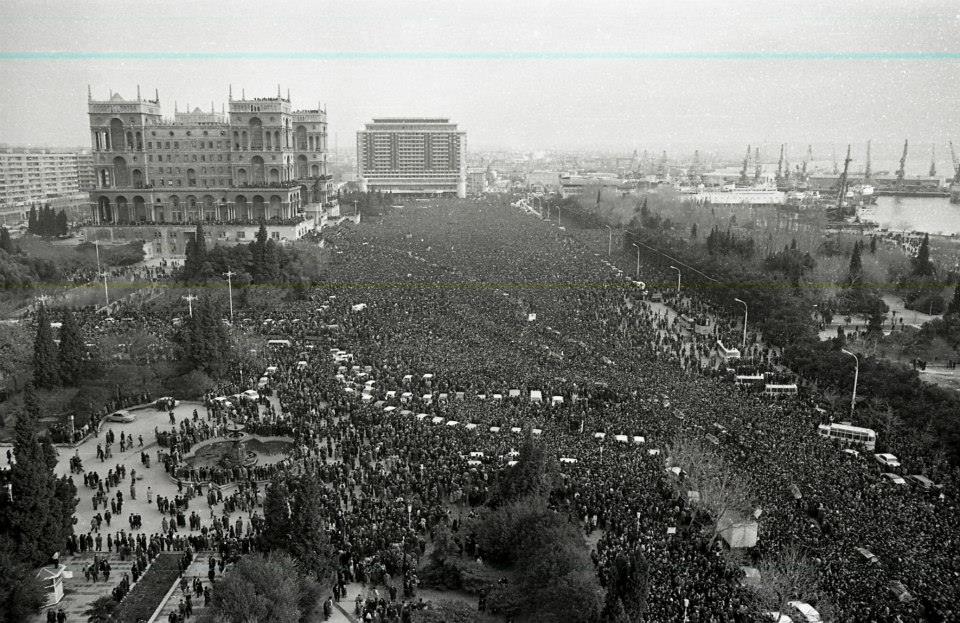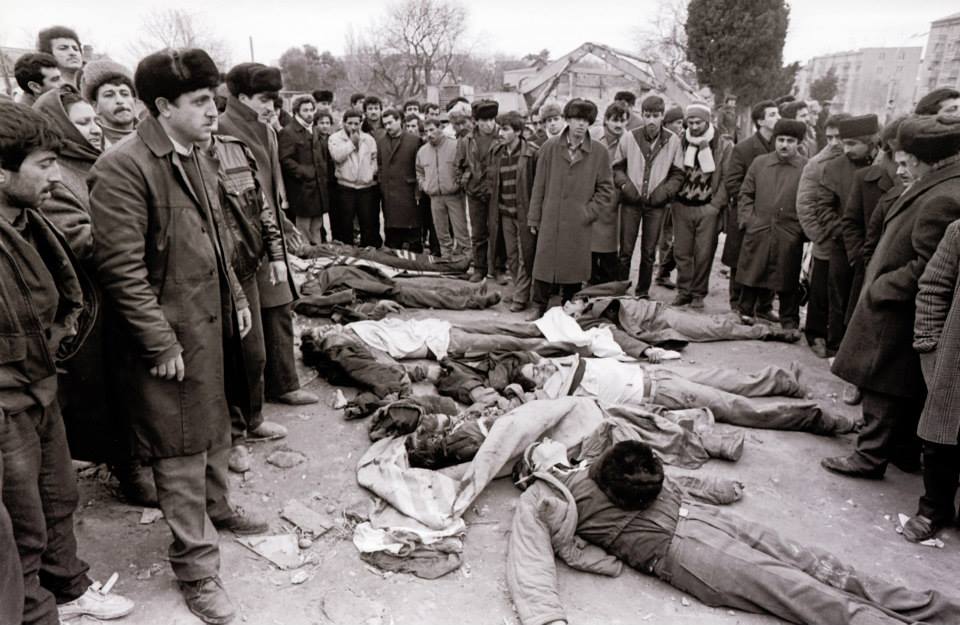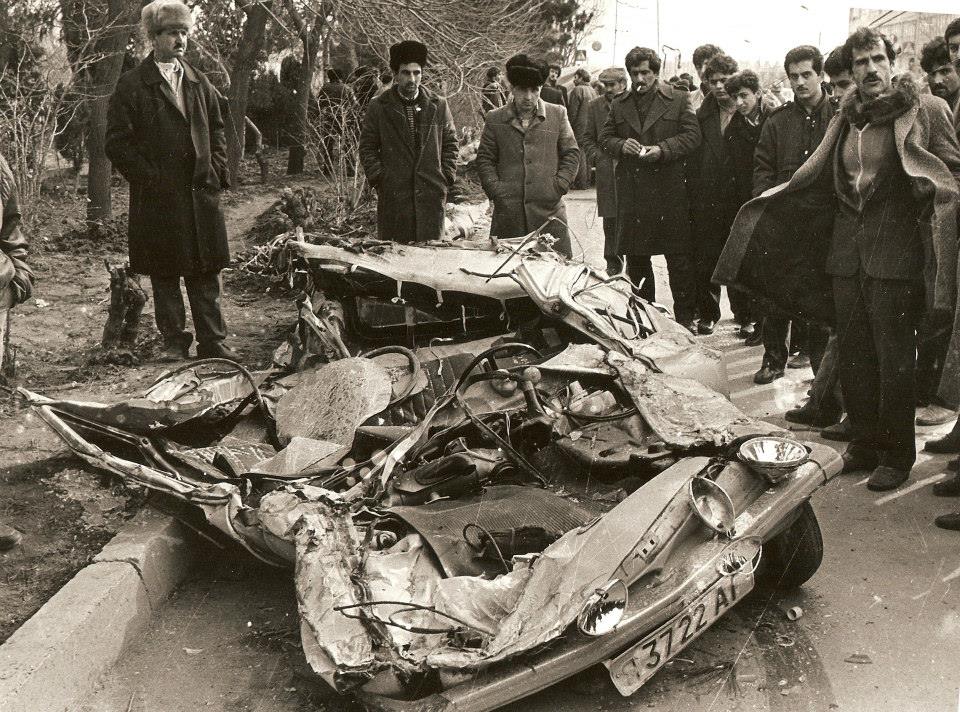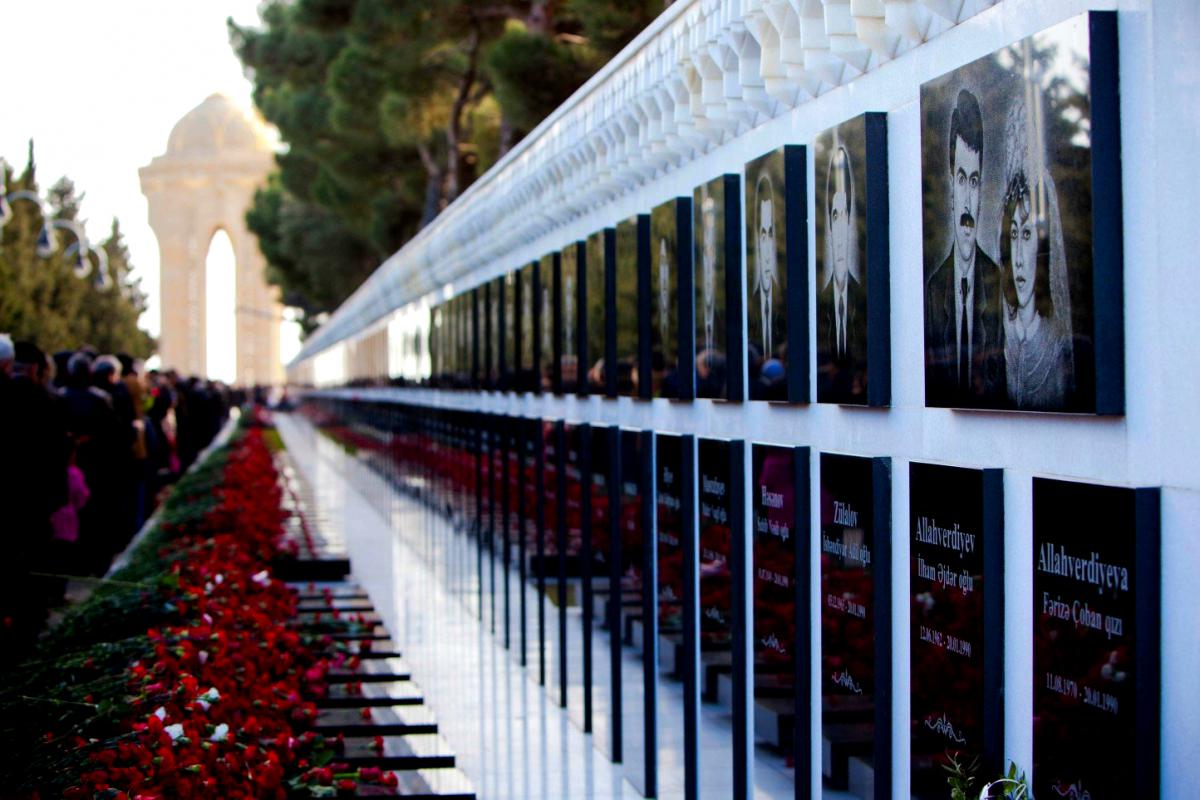Today, Azerbaijanis are marking the 31st anniversary of "Black January", paying homage to the victims of Soviet repression that claimed more than 140 lives on January 20 in 1990. Since then, the date has been commemorated at the highest level every year in Azerbaijan.
In the late 1980s, when the Soviet Union was in its twilight, Armenia decided to take advantage of the geopolitical situation. In 1988, Armenia, which was the Soviet republic established in the historical lands of Azerbaijan, expelled 250,000 Azerbaijanis from their homelands, the last portion of Azerbaijani population who had remained there after the series of mass deportations of Azerbaijanis during the 20th century. At the same time, Armenia conspired to overtake and occupy the Nagorno-Karabakh region which is internationally recognized territory of Azerbaijan but had been partially populated with ethnic Armenians living alongside indigenous Azerbaijanis.
As a result, hundreds of thousands of Azerbaijanis took to the streets in Baku in 1988 – 1989 demanding the Soviet authorities in Moscow to put a stop to Armenia’s illegal actions. Instead, the Soviet leadership turned a blind eye to these events and did nothing of the kind. The mass protests of Azerbaijanis in Baku against the policies of the Soviet Union turned into an independence movement for Azerbaijan.
In early 1990, Armenia’s parliament voted to include the Nagorno-Karabakh region of Azerbaijan in its budget plans, disregarding Azerbaijani jurisdiction and revealing Armenia’s intent to annex the region. In the wake of the move, Azerbaijanis flocked to the streets in Baku again to express their mass protests against the Soviet Union’s policy towards the fate of Azerbaijan's Nagorno-Karabakh region.
By the bloody date, a 50-thousand army of the Soviet military troops and special forces had already surrounded Baku. On the night of January 19–20, 1990 – shortly before a state of emergency was declared – Soviet tanks rolled into Baku, destroying everything in their path. A total of 146 Azerbaijanis were killed in the incursion of the Soviet forces, and another 744 were injured. More than 840 Azerbaijani citizens were illegally arrested, while 200 houses and apartments were destroyed. In addition, 80 cars, including ambulances, were damaged. Pogroms continued in other cities of Azerbaijan, including Neftchala and Lankaran in the south, where eight people fell victim to Soviet invasion on January 25 and 26.

"At noon on January 20, eighty-five bodies were brought to our morgue," said Fuad Aliyev, who worked as a doctor at one of the central hospitals in Baku when the bloody events took place. "Seventy-five of them were shot in the back, two died of blunt force trauma, six were crushed by APCs [armored personnel carriers], and two died of cut and puncture wounds. Six bullets were fired at one of the dead from close range. It is clear that the goal was to completely destroy these civilians."
For Azerbaijanis, January 20 symbolizes heroism of the nation in addition to the tragic events that occurred that day in history. Azerbaijanis believe that the resistance movement led to regaining the country’s independence from the Soviet Union a year later in 1991. Every year on January 20, millions of people visit the Alley of Martyrs, a cemetery where the victims of the tragic, yet heroic day are buried, to honor the memories of the founders of independence.

“There were similar confrontations in Baltic states and Georgia; however, the events in Azerbaijan were larger and more brutal in comparison to others,” Ikram Aghasiyev, a historian at the Azerbaijan National Academy of Sciences told Caspian News. “The goal was to intimidate other nations under the decaying Soviet rule.”
“Our people won the fight. So, January 20 events should not be recalled as a tragedy anymore today. This is a page of heroism in our history. People’s bare hand resistance against armed soldiers and tanks is a real proof of valor.”
The Soviet Union was dissolved in December 1991, at which time it broke up into 15 independent states, the Republic of Azerbaijan being one of them.








 Armenian sappers commenced on Monday mine-clearance operations in the territories adjacent to the Saint Mary Church in village of Voskepar (Armenia...
Armenian sappers commenced on Monday mine-clearance operations in the territories adjacent to the Saint Mary Church in village of Voskepar (Armenia...
 Russian Foreign Minister Sergei Lavrov has reasserted that Moscow has no intentions to stop the fighting in Ukraine, even if peace talks commence.
Russian Foreign Minister Sergei Lavrov has reasserted that Moscow has no intentions to stop the fighting in Ukraine, even if peace talks commence.
 Iran has refuted reports of alleged damage to Shimon Peres Negev Nuclear Research Centre located southeast of Dimona, Israel, during the recent air...
Iran has refuted reports of alleged damage to Shimon Peres Negev Nuclear Research Centre located southeast of Dimona, Israel, during the recent air...
 Iran’s Foreign Minister, Hossein Amir-Abdollahian, has labeled a foiled Israeli drone attack in certain parts of the country as a "failure" for Isr...
Iran’s Foreign Minister, Hossein Amir-Abdollahian, has labeled a foiled Israeli drone attack in certain parts of the country as a "failure" for Isr...



